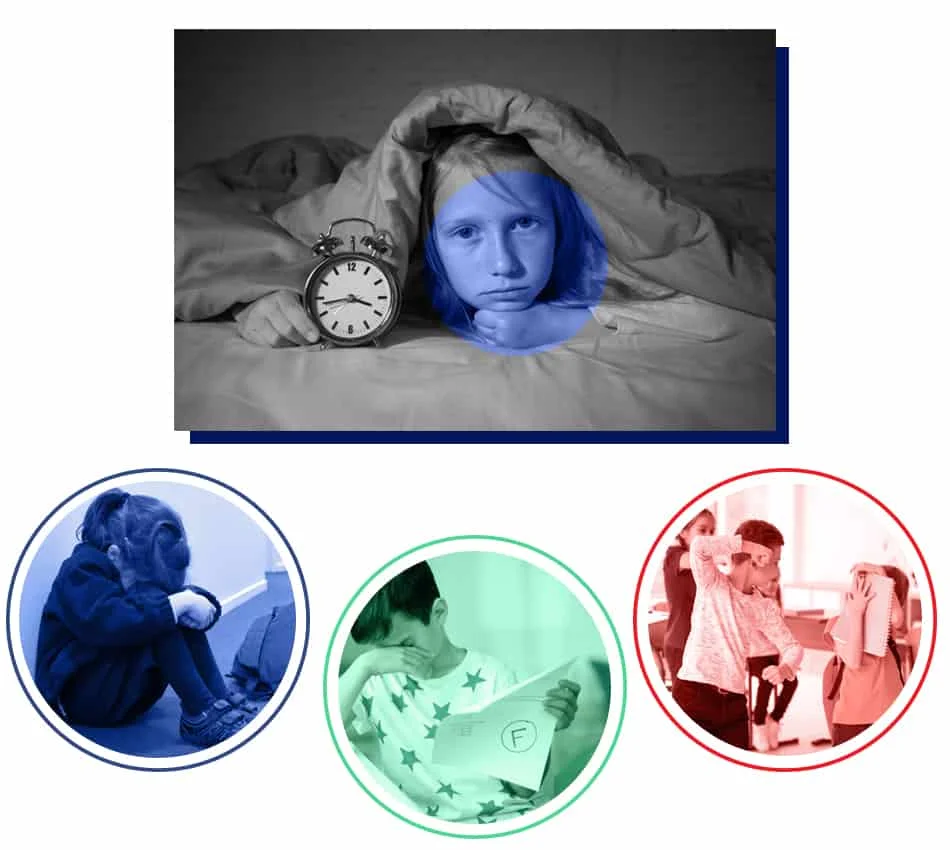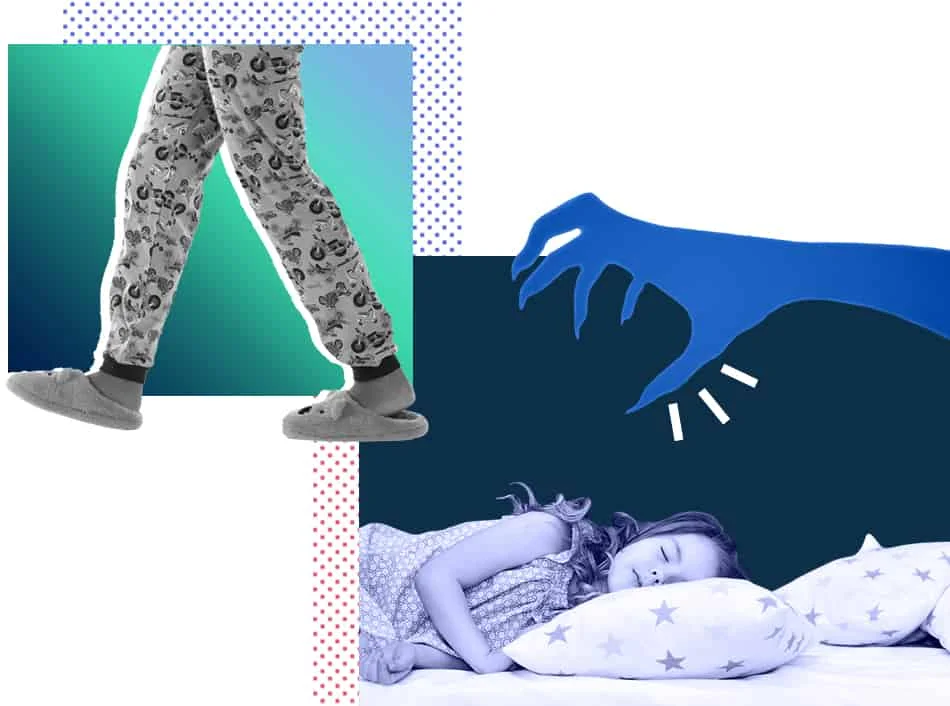More than two-thirds of children younger than ten have experienced some type of sleep-related difficulty. While most children will outgrow these issues in time, some struggle with persistent symptoms that disrupt their daily lives. And pediatric sleep disorders can cause more than daytime fatigue. Sleep difficulties in children are linked to a number of behavioral, academic, social, and developmental problems, including hyperactivity and aggression.
Some children may experience frequent night wakings due to sleep apnea or have problems falling and staying asleep because of night terrors, bed-wetting, restless leg syndrome, or sleepwalking. Children with sleep disorders can feel excessively tired during the day and have trouble concentrating in school.

Sleep disorder
Any physical or psychological condition that disrupts or impacts sleep.
Note: The content on Sleepopolis is meant to be informative in nature, but it shouldn’t take the place of medical advice and supervision from a trained professional. If you feel you may be suffering from any sleep disorder or medical condition, please see your healthcare provider immediately.
Q: Does my child have a sleep disorder, or is he or she just not getting enough sleep?
It may depend on the age of the child. Newborn babies will sleep about seventeen hours a day and wake every one to three hours. Babies between the ages of four months and a year sleep about fifteen hours daily and begin to regulate their sleep cycles, meaning they usually start to sleep through the night. Toddlers sleep about twelve hours a night with one or two naps during the day, while children ages three to six need eleven to twelve hours each night with a short daytime nap. Kids seven to ten years old need up to twelve hours of sleep, and teenagers need eight to ten hours to feel rested.
Related: Childhood Sleep Apnea
If your child has difficulty waking up in the morning, is school-aged but needs an afternoon nap, is tired during the day, or needs to sleep late on weekends to feel refreshed, they might not be getting enough sleep at night. This could be caused by inconsistent sleep schedules, anxiety, sleep apnea, or another type of sleep disorder.
Q: Are nightmares, night terrors, sleepwalking, and/or bed-wetting normal?
Sleepwalking, night terrors/nightmares, and bed-wetting are common problems for many children. Although it can be alarming to witness, sleepwalking is common and usually resolves by the time your child becomes a teenager. Sleepwalking is not inherently dangerous, but can pose a physical risk to the child. If your child is prone to sleepwalking, make sure the front and back doors are locked at night and heavy, sharp, and dangerous objects are out of reach. If sleepwalking is accompanied by other factors (such as night terrors and bed-wetting), it might be cause for concern.

Night terrors are also common in children and usually occur a few hours after falling asleep. A night terror differs from a nightmare in that the child will usually not respond to comfort measures and won’t remember the episode in the morning. Common reasons for night terrors include stress, sleeping in a new environment, or being overtired. If your child is having frequent nightmares or night terrors that are affecting their quality of sleep, see your pediatrician for advice.
Bed-wetting is generally normal for children, but becomes more worrisome after age seven. Bladder control is usually well-established by this age, and frequent bed-wetting in older children can be a sign of a sleep disorder or other underlying problem.
FAQ
Q: What causes sleepwalking? A: Sleepwalking episodes may be caused by sleep deprivation, stress, fever, or inconsistent sleep schedules. The tendency to sleepwalk tends to run in families, indicating a possible genetic element.Q: My child wakes up several times during the night. Is this normal?
There are many reasons for night waking in children. Grade-school kids can wake up because of a nightmare and have trouble falling back to sleep due to fear. Toddlers or preschoolers might have their sleep disrupted because of a recent life change such as a move or other stress factor. Babies can wake up frequently for comfort or because of teething pain.
If your child wakes up frequently throughout the night, is excessively sleepy during the day, and has risk factors such as snoring and being overweight, they might have a sleep-related breathing disorder. Sleep apnea causes frequent awakening during the night because of partial or complete blockage of the airway. A home or laboratory sleep study is the best way to diagnose sleep apnea, which can have serious health effects.
Q: How do I know when it’s time to take my child to a sleep specialist?
If your child experiences risk factors such as frequent night terrors, poor concentration, excessive daytime sleepiness, or breathing interruptions at night, they might need to see a sleep specialist. If you suspect that your child has a sleep disorder, your pediatrician will be able to tell you if your experience is normal or cause for concern.
If your pediatrician suspects that your child has a sleep disorder, you’ll likely be referred to a children’s sleep specialist. Depending on your child’s symptoms, the specialist may perform an overnight sleep study to determine the underlying cause of the sleep problem. Your child’s brain waves, muscle function, and vital signs will be monitored and recorded as they sleep. A sleep study can provide a definitive diagnosis to help you understand and treat your child’s sleep difficulty.
Polysomnography
The technical term for a sleep study (poly=many, somno=sleep, graphy=write.)
Last Word From Sleepopolis
Children can suffer from common sleep disorders such as sleep apnea and insomnia just like adults. Daytime sleepiness, behavioral issues, and difficulty at school are often the first indications of a pediatric sleep disorder. Even hyperactivity and temper tantrums can point to problems with sleep loss.
If you suspect your child may be suffering from a sleep disorder, a visit to a pediatric sleep specialist can give you a conclusive answer. Many childhood sleep disorders resolve on their own as kids get older, or are treatable with behavior changes. Understanding children’s sleep disorders can demystify your child’s slumber troubles, and help you both sleep better at night.

























